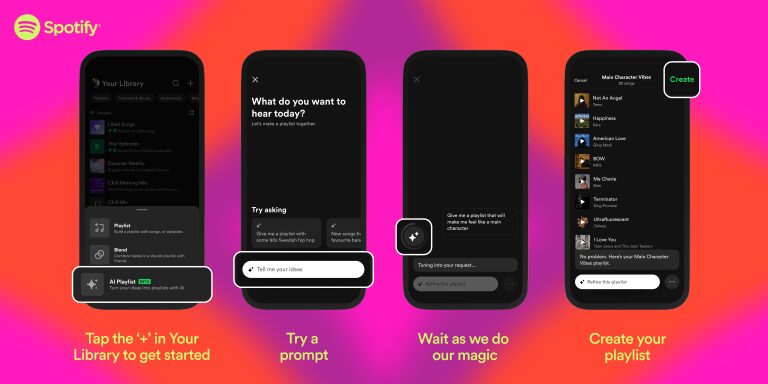Spotify releases AI that creates playlists based on prompts

Spotify is getting additional AI: A new function is now available in select regions, initially in the UK and Australia, that allows you to create a playlist based on written instructions. Other markets are expected to follow “in the coming months,” reports TechCrunch.
Music according to prompts
According to Spotify, the prompts can relate to all sorts of things, such as places, animals, activities, film characters, colors, or emojis. The best playlists are said to be created using prompts that contain a combination of genres, moods, artists, and decades. “Quick beats to fight a zombie apocalypse” is said to work quite well, as are more “classic” prompts such as the desire for “funny, happy and positive songs”. After the playlist is created, users can also use the AI to revise and refine the final result, for example by giving commands such as “less upbeat” or “more pop”. Users can also remove individual songs from the playlist by swiping to the left.

Spotify AI not yet in Europe
Once activated, the function is hidden under “Library” in the Spotify app. There you can create new AI playlists using the plus button. If you can’t think of what the AI should put in the playlist, Spotify offers suggestions. This should make it easier to get started. Spotify has been investing in AI technology for many months: when it launched AI DJ, which rolled out globally last year, the company used a combination of Sonantic and OpenAI technology to create an artificial version of Xavier “X” Jernigan’s voice , the head of Spotify’s cultural partnerships department, which suggests personalized song selections to the user.
However, this AI tool is not yet available in all countries. Last year, Spotify announced it would invest in internal research to better understand the latest developments in AI and large language models. In the future, the AI will also be able to summarize podcasts or create audio advertising for the platform. Spotify is also said to have considered using AI technology that could clone a podcast host’s voice for host read ads.





























